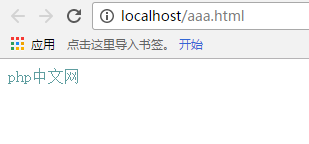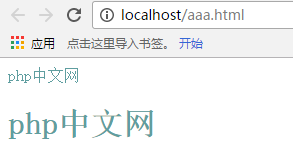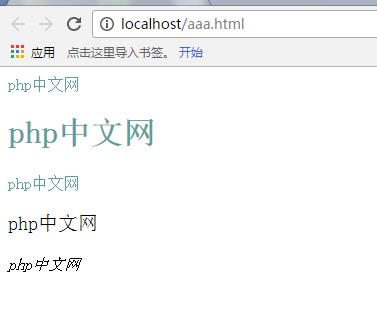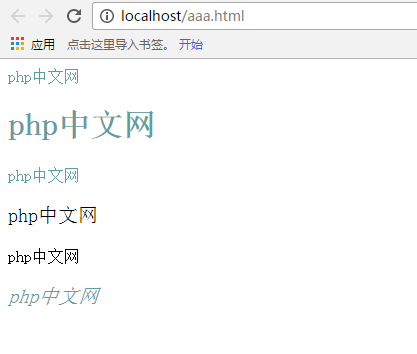class selector
Class selectors allow you to style styles independently of document elements
For example: .class{} (note that it starts with a dot, which is the sign of the class selector, followed by Attribute name, the specific settings are in curly brackets)
Let’s give a simple example:
html file:
<div class="div"> php中文网 </div>
css file:
.div{color: cadetblue;
}In this way, customized effects can be achieved:

We have also touched on it before, using the class selector in combination with the element selector. Add another one below:
<h1 class="div">php Chinese website</h1>
Now we will modify the css file as follows:
h1.div{color: cadetblue;
}This way After adding the element description in front of the class selector, this .div will only work on h1.
Let’s take a look at the specific effect:

What we are going to talk about next is the multi-class selector: .class.class{} We have not touched this before. Let's feel it while writing: The html file lists several p fields, It’s easy to compare then:
<p class="p1">php中文网</p> <p class="p2">php中文网</p> <p class="p3">php中文网</p>
The css file does not have a selector to modify one setting, the first color is blue and black, the second font size is 20px, and the third font style is italic:
.p1{ color: cadetblue;
}.p2{ font-size: 20px;
}.p3{ font-style: italic;
}The following is a screenshot of the effect:

.p1.p2{ font-style: italic;
}html:<p class="p1 p2">php中文网</p>The following is the result picture:

